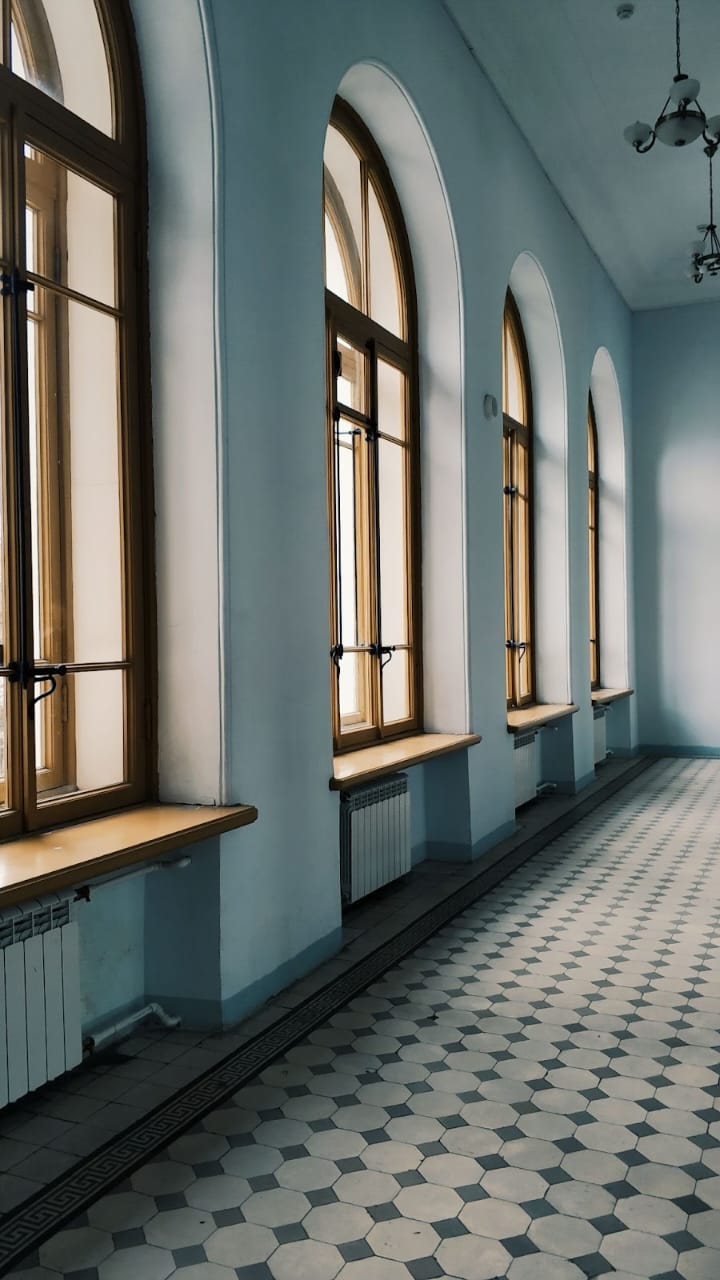
Manual for selecting the best floor tiles
28 Jan 2022
- Itika Agarwal
4 Mins Read
There Are Numerous Aspects To Consider When Choosing Floor Tiles. Consider All The Factors To Make Sure You're Choosing The Best Option For You And Your House, From Design And Finish To Usability And Longevity.
Continue Reading For Our Best Suggestions And Advice If You're Looking To Buy Some Floor Tiles.

The First Step In Any Renovation Job Will Be To Acquire Inspiration. Consider The Style, Colour, And Finish You Want To Go With Because It Will Influence Your Ultimate Decision On The Type Of Floor Tile You Choose. Are You Envisioning A Natural Stone Tile That Is Rough And More Rustic? Or A Sleeker, More Contemporary Matte Finish?
The Size Of The Room Or Area In Which You Are Tiling Must Also Be Taken Into Account. The Other Tiles You Need And The Extra Money You'll Need To Spend, The Bigger The Space! Therefore, Consider Your Total Square Meters As It Will Undoubtedly Guide Your Tile Selection.
The Most Economical Choice May Be Large Format Tiles If You Are Operating With A Vast, Open Area. While A Small Bathroom Wouldn't Be Able To Accommodate A Large Format Tile, You Could Easily Purchase More Tiles For The Needed Area With Less Space To Work With. Balance Is The Key!
Pick The Type Of Tile For Your Floor.
After Deciding On Your Spending Limit And The Design And Style You Want To Achieve, You Must Choose The Material. Your Material Choice May Still Be Influenced By Your Budget (The Cost Of Real Marble Vs. Fake Marble, For Instance, Would Vary Greatly! ), But Practical Considerations Are Typically The Main Deciding Factor.
Here Are Some Advantages And Disadvantages Of Various Floor Tile Materials:
Natural Stone Tiles For Floors
Choosing A Natural Stone Has The Benefit Of Being Exactly That—Natural. It May Give You A Raw, Organic Touch And Frequently Has A Distinctive Appearance And Finish (And With A Price Tag To Match
In General, Natural Stone Will Need More Upkeep Than Porcelain; For Instance, Depending On The Sealer, It Will Need To Be Resealed Every Six To Twelve Months. Therefore, If You Choose Natural Stone, You Must Consider Long-Term Care And Upkeep.
Additionally, Natural Stone Is Much More Prone To Chipping And Damage. It Is True That A Nice Book-Matched Piece Of Marble Would Look Great And Outperform Any Imitation Stone, But Others May Counter That Because It Is Natural, It Can Be Limited In Design And Patterns Because You Are Working With What Nature Provides.
Since Marble Is Porous, It Shouldn't Be Used In Areas Where There Will Be A Lot Of Water Contact. However, It Is One Of The Most Exquisite And Variegated Natural Stones And Is Available In A Wide Range Of Colours And Patterns; It Would Look Lovely As A Feature Wall In A Bathroom, For Instance.

Limestone Is Available With Both Rough And Polished Surfaces. Although It Has A Very Natural And Raw Feel, It Is Scratch- And Stain-Prone And Shouldn't Be Used In High-Traffic Areas. While Limestone Is More Brittle Than Slate, Slate Has A Similar Natural Feel.
Because It Is Delicate And Porous, Travertine Requires Frequent Resealing. However, It Isn't The Ideal Option For Locations With A Lot Of Foot Traffic Or High Activity. It Would Be Fine As A Bathroom Tile.
Granite Is A Hard Stone That Is Available In A Wide Variety Of Finishes And Colours, Making It One Of The More Popular Natural Stones Along With Marble. It Can Be Very Brittle And, If Utilised In A Busy Floor Area, There Is A Risk Of Scratching If It Is Not Well Sealed.
Porcelain Tiles For Floors
Porcelain Tiles Don't Always Need To Be Sealed, Which Is A Benefit. It Is A Far More Resilient Material Than Natural Stone And Can Withstand Much Greater Pressure When Used As Flooring In High-Traffic Areas.
Porcelain's Main Advantage Is That It Requires Little Care And Is Less Likely To Chip And Crack. Because The Finishes And Colour Schemes Are Artificial, They Won't Fade With Time, And The Material Is Naturally Stain-Resistant.

If You Truly Desire A Marble Look Without The Drawbacks Of Having A Marble Surface, Porcelain Is More Cost-Effective. Since It Is Man-Made, A Wide Variety Of Forms, Shapes, And Sizes Are Readily Available In Numerous Imitation Finishes, Ranging From Wood-Effect To Marble-Effect And Everything In Between. When It Comes To Porcelain Floor Tiles, The Possibilities Are Truly Endless!
The Fact That Many Porcelain Floor Tiles Have An Anti-Slip Coating Is Another Significant Advantage. Therefore, You Can Choose A Floor Tile Even In Regions With High Traffic That Would Otherwise Not Be Appropriate. This Is Also Quite Helpful If, For Example, You Are Tiling A Mobility Wetroom And You Need The Floor Tiles To Be Non-Slip.
The Last Thing To Think About
Different Rooms Will Benefit From Different Floor Tiles. It's Crucial To Consider Factors Like The Lighting In The Space. Both Artificial And Natural Light Will Alter How A Tile Seems, So Be Sure To Collect Lots Of Samples Since We Promise They Won't Appear The Same In Your Location As They Do In A Showroom!
f Your Room Receives Less Natural Light, You Can Choose A Brighter Tile To Brighten The Space While Still Knowing That The Total Colour Will Be Slightly Darker Due To The Absence Of Natural Light And Will Therefore Balance Out. Conversely, If The Space Receives A Lot Of Natural Light, You May Want To Choose A Darker Tile.